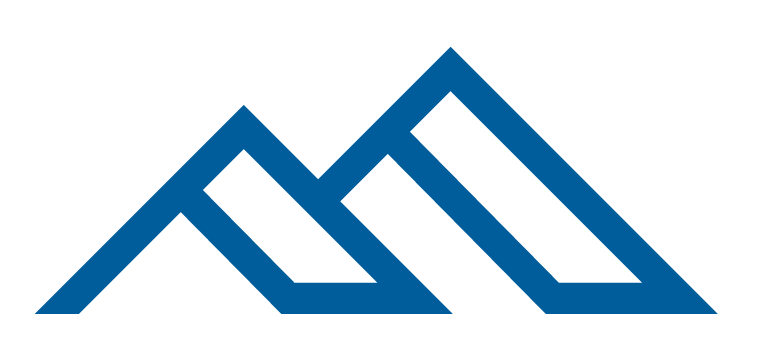I Wish I Had Known with Jacob Grosshandler

Jacob Grosshandler is a Deal Guide for Private Equity Primer, co-founder of a commercial and financial due diligence firm—Splash 4 Partners, and an executive coach. He has worked as a sales strategy consultant advising Fortune 500 companies on how to grow within the franchising space and has also worked as a policy fellow on issues of economic security. His co-workers describe him as curious and a wayward intellectual who puts his talents to advising on transactions and growth strategies. We sat down with Jacob to have him share some thoughts on navigating a career in mergers and acquisitions (M&A).
You were an anthropology and political science major in undergrad. I believe you took just one econ and one accounting course prior to working in the capital markets right out of undergrad. How has your liberal arts training helped?
First, very few people end up doing the thing they went to school for today. Even those that do, only a minority stick with it for their entire career. So, I am not that sure how helpful defining ourselves by a decision we make and interests we had when we could first vote is in defining the forty years of life we are laborers.
But that is not your question.
How did my liberal arts / social science background help? It helped in two primary ways. First and foremost, I knew I was the furthest behind the learning curve in my analyst class. That was a hindrance at the start, because the people I reported to had to answer two to three times the number of questions and usually had an additional turn on a deliverable. Among some of my early coworkers, the number of questions I asked is what I am remembered for. Looking back, knowledge of this asymmetry was a competitive advantage.
There is that old joke about MBAs. You know, “the true mark of an MBA is someone is often wrong but seldom in doubt.” Well, I had a lot of doubt, and because of my knowledge deficit, I knew I would often be wrong frequently. This was a motivator for me. I hate not knowing and use curiosity to close knowledge asymmetries where I can. Being a social science kid gave me a bigger hall pass in the first year on the job than those with accounting, econ, and finance degrees. I used that hall pass liberally before it expired.
That brings me to the second way in which it helped. I knew my spike strengths and played to them. I was working in a cap markets rotational program in 2007. Investment banking volumes fell off a cliff as I was joining the bank. A ton of folks wanted to do i-banking rotations and those who did largely sat there with less than normal to do and very little modeling experience on the other side of it. I went to work in equity research on the buy and sell side. I knew how to do desktop research. I knew how to interview people having done ethnographic field research, and taking a rotation under a newly minted equity analyst meant there were models to be built. So, I narrowed some of the knowledge deficit by entering a playing field that I knew I could compete in and where I was positioned to get reps. But, I also was learning new skills valued elsewhere. By the end of the two-year program, I had more modeling experience than the average analyst who went into the traditional i-banking track because of a lack of deal flow during the Financial Crisis.
How did your liberal arts training hurt you?
I would say in fairly obvious ways. At the time, I did not have a ton of accounting skills or deep finance know how. All the jargon was foreign to me. And because I was learning how to use Excel, trying to decode finance speak, learn how to work in a corporate environment, and get up to speed on the basics of accounting, econ, and finance, I had to work harder and admittedly redo my work more than others. At least in the beginning.
I was always an A student, super competitive, and used to winning. All of this is to say, the first six to nine months of the job were frustrating for me. I hate to lose. So, I used that as fuel to keep pushing.
This telling of things likely over indexes on my ability to persevere. I shamelessly used every resource I had to ask questions. I would email division heads of the bank asking for primers on areas they lectured on to our analyst class. I would ask friends and family members in finance and accounting my “stupid questions”. The assistance of others was what kept me going. Persevere and ask questions.
What is the unexpected perk of a career in mergers and acquisitions (M&A)?
Working with driven people. The old axiom, “you are the average of the five people you spend the most time with” is true. When you are under 23 and your frontal cortex is underbaked, you overweight social influences and as a result are prone to underweight the temperament and drive of people you associate with. In mergers and acquisitions (M&A), the average person is driven and hard working. This is not the case with the general population. As we know from endless amounts of research, talent clusters and where it clusters you tend to see greater levels of ambition. To hang in there, you at least must hug the middle, and to break through, you have to dig in and learn. Being around motivated, competitive, hardworking people trying to hold high standards—even if it is about double periods and checklists—teaches you how to work and contribute to a team. It gives you transferable skills, and it positively impacts what you can do in and out of your career. I think this is what gets lost when people talk about the obvious costs of working in M&A.
What is the most over undervalued skill across M&A professions?
The most undervalued skill is the thing that gets the smallest amount of learning and development (L&D) budget. It will get more valuable as more automation comes into the M&A practice. It is communication and soft skills. Being easy to work with in a field where everything is negotiated—purchase price and terms, scopes of work with vendors, whose template is going to be used, etc.—being able to communicate well translates to being easy to work with and someone who can get results. The more we automate, the more it frees us up as a profession to introduce greater complexity. In places like financial due diligence (FDD), this might mean more forecasting work or more frequently updated tasks. In debt financing, it might mean more surveillance around performance and more complex structures designed to lower risk. All of which is to say, there is more work, more information to sort and weigh, and more points of failure in the system. That means more to negotiate and more to communicate around.
You did not ask for two, but I feel compelled to give a second. Being discerning is undervalued, especially by a segment of junior deal pros. The whole M&A profession is about making judgements and decisions based on risk and reward. Limited Partners (LPs) trust the General Partners (GPs) at PEGs to be discerning in what they buy and do not buy. Sellers trust the investment banks to be discerning about who they include in an auction process, and so on. Too many examples exist where people make bad judgements and blow their entire reputations with their employer. That is cutting corners in work, skipping work to secretly go on a trip, lying, not maintaining confidentiality, getting drunk at work events, the list goes on and on. There were a million and one ways to die in the wild west and the same can be said about ending your corporate career. Discernment is key.
What did you wish you knew earlier in your career?
Two things.
Great work takes time. Plan accordingly.
And success at work is less about being the best or winning at everything. It is more about how to effectively collaborate to win on the selective things that matter. Figure out what makes the team win and how you can play a bigger and bigger role in that overtime.
